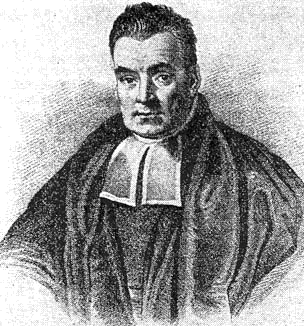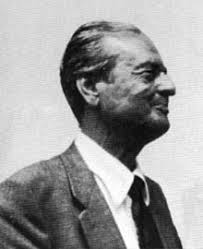Bayesian probability is an interpretation of the concept of probability, in which, instead of frequency or propensity of some phenomenon, probability is interpreted as reasonable expectation representing a state of knowledge or as quantification of a personal belief.

Statistical inference is the process of using data analysis to infer properties of an underlying distribution of probability. Inferential statistical analysis infers properties of a population, for example by testing hypotheses and deriving estimates. It is assumed that the observed data set is sampled from a larger population.
Bayesian inference is a method of statistical inference in which Bayes' theorem is used to update the probability for a hypothesis as more evidence or information becomes available. Fundamentally, Bayesian inference uses prior knowledge, in the form of a prior distribution in order to estimate posterior probabilities. Bayesian inference is an important technique in statistics, and especially in mathematical statistics. Bayesian updating is particularly important in the dynamic analysis of a sequence of data. Bayesian inference has found application in a wide range of activities, including science, engineering, philosophy, medicine, sport, and law. In the philosophy of decision theory, Bayesian inference is closely related to subjective probability, often called "Bayesian probability".

Thomas Bayes was an English statistician, philosopher and Presbyterian minister who is known for formulating a specific case of the theorem that bears his name: Bayes' theorem. Bayes never published what would become his most famous accomplishment; his notes were edited and published posthumously by Richard Price.

Bruno de Finetti was an Italian probabilist statistician and actuary, noted for the "operational subjective" conception of probability. The classic exposition of his distinctive theory is the 1937 "La prévision: ses lois logiques, ses sources subjectives", which discussed probability founded on the coherence of betting odds and the consequences of exchangeability.
In statistics, the Rao–Blackwell theorem, sometimes referred to as the Rao–Blackwell–Kolmogorov theorem, is a result that characterizes the transformation of an arbitrarily crude estimator into an estimator that is optimal by the mean-squared-error criterion or any of a variety of similar criteria.
Bayesian statistics is a theory in the field of statistics based on the Bayesian interpretation of probability, where probability expresses a degree of belief in an event. The degree of belief may be based on prior knowledge about the event, such as the results of previous experiments, or on personal beliefs about the event. This differs from a number of other interpretations of probability, such as the frequentist interpretation, which views probability as the limit of the relative frequency of an event after many trials. More concretely, analysis in Bayesian methods codifies prior knowledge in the form of a prior distribution.

In the design of experiments, optimal experimental designs are a class of experimental designs that are optimal with respect to some statistical criterion. The creation of this field of statistics has been credited to Danish statistician Kirstine Smith.
In game theory, a Bayesian game is a strategic decision-making model which assumes players have incomplete information. Players hold private information relevant to the game, meaning that the payoffs are not common knowledge. Bayesian games model the outcome of player interactions using aspects of Bayesian probability. They are notable because they allowed, for the first time in game theory, for the specification of the solutions to games with incomplete information.

Debabrata Basu was an Indian statistician who made fundamental contributions to the foundations of statistics. Basu invented simple examples that displayed some difficulties of likelihood-based statistics and frequentist statistics; Basu's paradoxes were especially important in the development of survey sampling. In statistical theory, Basu's theorem established the independence of a complete sufficient statistic and an ancillary statistic.

David Harold Blackwell was an American statistician and mathematician who made significant contributions to game theory, probability theory, information theory, and statistics. He is one of the eponyms of the Rao–Blackwell theorem. He was the first African American inducted into the National Academy of Sciences, the first African American full professor at the University of California, Berkeley, and the seventh African American to receive a Ph.D. in mathematics. In 2012, President Obama posthumously awarded Blackwell the National Medal of Science.
Determinacy is a subfield of set theory, a branch of mathematics, that examines the conditions under which one or the other player of a game has a winning strategy, and the consequences of the existence of such strategies. Alternatively and similarly, "determinacy" is the property of a game whereby such a strategy exists. Determinacy was introduced by Gale and Stewart in 1950, under the name "determinateness".
In game theory, the purification theorem was contributed by Nobel laureate John Harsanyi in 1973. The theorem aims to justify a puzzling aspect of mixed strategy Nash equilibria: that each player is wholly indifferent amongst each of the actions he puts non-zero weight on, yet he mixes them so as to make every other player also indifferent.

Jean-François Mertens was a Belgian game theorist and mathematical economist.

In marketing, Bayesian inference allows for decision making and market research evaluation under uncertainty and with limited data.

Arunava Sen is a professor of economics at the Indian Statistical Institute. He works on Game Theory, Social Choice Theory, Mechanism Design, Voting and Auctions.








